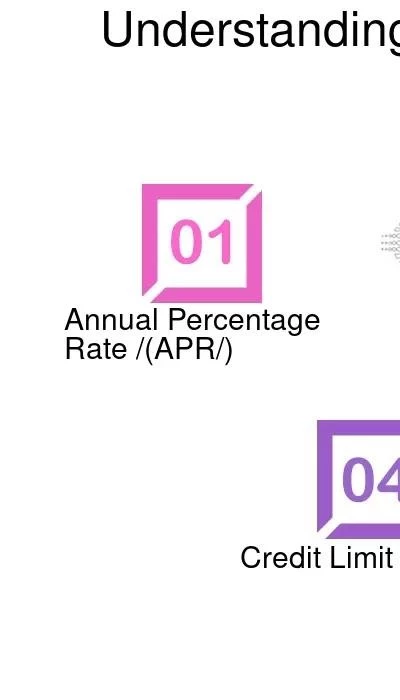
Navigating the world of credit cards requires understanding your rights and responsibilities, especially concerning liability limits. This guide will help you protect yourself from potential financial losses due to credit card fraud and unauthorized charges.
Understanding Liability Limits
Liability limits define the maximum amount you’re responsible for in case of unauthorized credit card use. These limits are governed by both credit card regulations and the specific terms and conditions of your card agreement. Knowing your maximum liability is crucial for effective credit card protection.
Zero Liability Protection
Many credit card issuers offer zero liability protection. This means you won’t be held responsible for unauthorized charges, provided you report the stolen credit card or fraudulent activity promptly. However, «promptly» usually means reporting within a reasonable timeframe, often within 24-48 hours. Check your cardholder agreement for specific details.
Maximum Liability Without Zero Liability
If your card doesn’t offer zero liability, or if you fail to report unauthorized charges promptly, your liability might be capped at a certain amount, often $50 or less, under the Fair Credit Billing Act. This maximum liability significantly reduces your potential losses.
Protecting Yourself from Credit Card Fraud
Proactive measures are essential for strong credit card security. These include:
- Regularly checking your credit card statements for unauthorized charges.
- Using strong, unique passwords and PINs.
- Being cautious about using your card at unfamiliar or insecure locations.
- Shredding old credit card statements and receipts.
Disputed Transactions and Chargebacks
If you discover unauthorized charges, immediately contact your credit card issuer to report the fraudulent activity. You can initiate a disputed transaction and potentially request a chargeback, reversing the fraudulent charges. Keep detailed records of all communications and documentation related to the disputed transactions.
Credit Card Insurance and Consumer Protection
While credit card insurance isn’t always necessary with zero liability protection, it can offer additional peace of mind. Furthermore, remember that consumer protection laws are in place to safeguard your rights, including the right to dispute fraudulent charges. Understanding these regulations is a key element of effective credit card protection.
Understanding your liability limits is paramount for responsible credit card usage. By combining proactive security measures with knowledge of your rights under credit card regulations and consumer protection laws, you can effectively minimize your risk of financial loss due to credit card fraud and credit card debt resulting from unauthorized use. Remember to always check your cardholder agreement for specifics regarding your liability limits and reporting procedures.
Beyond the Basics: Advanced Strategies for Credit Card Protection
While understanding your liability limits is crucial, proactive measures are your best defense against credit card fraud and spiraling credit card debt. Let’s delve into more advanced strategies to bolster your credit card security.
Monitoring Your Accounts: Beyond the Statement
Don’t rely solely on monthly statements. Utilize online banking and mobile apps to monitor your accounts regularly, ideally daily. This allows for immediate detection of unauthorized charges, enabling quicker reporting and potentially minimizing your maximum liability or leveraging zero liability protection. Early detection is key.
Securing Your Digital Footprint: Online Safety
Credit card fraud often starts online. Be wary of phishing scams and suspicious emails requesting personal information. Never click on links from unknown senders. Use strong, unique passwords for all online accounts, and consider a password manager to help you keep track. Employ two-factor authentication whenever possible for an extra layer of credit card security.
Travel Safety and International Transactions:
When traveling, inform your credit card issuer of your travel dates and destinations. This prevents your card from being flagged for suspicious activity due to unusual transaction locations. Understand the specific fees and potential liability limits associated with international transactions before you travel.
Dispute Resolution: Navigating Chargebacks Effectively
If you encounter disputed transactions, act swiftly. Gather all necessary documentation—receipts, transaction details, communication records—before initiating a chargeback. Familiarize yourself with your credit card issuer’s dispute resolution process and the specific timelines involved. Know your rights under consumer protection laws and credit card regulations.
Credit Card Insurance: An Extra Layer of Protection
While zero liability often covers unauthorized charges, credit card insurance can provide additional protection against losses resulting from stolen credit card incidents, including potential liability for fraudulent purchases beyond the maximum liability limits set by your card issuer. Consider the value proposition based on your spending habits and risk tolerance.
Building Good Credit Habits: Preventing Credit Card Debt
Responsible credit card usage is paramount. Track your spending diligently, pay your bills on time, and avoid exceeding your credit limit. These habits contribute to a strong credit score and reduce your vulnerability to financial hardship stemming from accumulating credit card debt.
Staying Informed: The Evolving Landscape of Credit Card Regulations
Credit card regulations and consumer protection laws evolve. Stay informed about changes that may affect your rights and responsibilities. Regularly review your credit card agreement and consult relevant government websites for updates on consumer protection.
By implementing these advanced strategies and maintaining a proactive approach to credit card security, you can significantly reduce your risk of credit card fraud, mitigate potential losses, and safeguard your financial well-being. Remember that vigilance and informed decision-making are your strongest allies in protecting yourself against unauthorized charges and maintaining healthy credit card habits.




This is an excellent and concise guide to understanding credit card liability and fraud protection. The clear explanation of zero liability policies and the Fair Credit Billing Act is particularly helpful. I appreciate the emphasis on proactive measures to prevent fraud. Highly recommended!